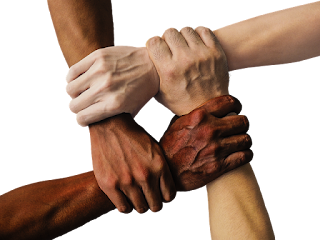Serotonin is associated with mood and it’s
present in certain foods, so can you eat your way out of depression and into
happiness?
 |
| Will this dish clear your depression? |
If you Google it up, you’ll find lots of articles
pushing the idea that depression can be fixed by adjusting your diet. One of
the common suggestions is that you should be looking out for serotonin. Is it
true, a Facebook rumour or a marketing scam?
Here’s what you need to think about before you
decide.
Serotonin and depression, what’s the link?
In the 1950s, scientists discovered that a
treatment for tuberculosis had an amazing side effect: it relieved depression
and anxiety, too. The key to the magic seemed to be a chemical
called serotonin.
Today, serotonin is associated with mood but
also physical good health.
What exactly is serotonin?
Serotonin is a chemical whose job involves
passing messages around the nervous system. It is a neurotransmitter.
Where do you find serotonin?
It’s in your brain as well as your digestive
system, in your blood and your central nervous system. In short: pretty much
all over the place.
What does serotonin do?
Here are some of the things serotonin is
involved with:
o
Mood, especially
happiness, depression and anxiety,
o
Bowel movements,
o
Bone health,
o
Blood clotting,
o
Sex drive,
o
Sleep.
Okay, sounds good. So, I want loads of it,
right?
The really annoying thing about the human body,
is that you can’t simply whack up your serotonin levels and think it’s all
good.
For example, if you boost serotonin in the
brain you can help fight depression, but the higher levels can have a bad
impact on your sex drive.
Think of your body as a complex machine like a
car: oil is an important ingredient that keeps it all going, but immersing your
ride in it wouldn’t be too wonderful.
So, how about I eat lots of serotonin food and
let my body figure it out?
Exactly what the scientists have been thinking.
In all the research, some are asking, “If we boost serotonin in the
gut, can we boost happiness in the brain? Can we eat our way to happiness?”
Of course, being scientists, they argue over
the best way to test that theory, too.
Some researchers said, “Look, we’re going to
get volunteers, feed them a load of food that’s high in serotonin: plantain, pineapple, banana, kiwi fruit, plums, and tomatoes and see
what happens.”
They
did this, several times, and results were mixed. Some thought it was a good
thing, others said it did nothing for depression.
Other researchers said, “Okay, instead of serotonin
let’s focus on food high in tryptophan, an essential amino acid that is
involved in creating serotonin, a kind of a precursor.”
They fed their volunteers food high in
tryptophan, like: meat, shellfish, fish, whole oats, wheat germ and also chia
seeds, cashew nuts, soybeans, cheese, and eggs.
Again, results were
mixed. Some thought it made a difference and others said it didn’t.
So, what’s the thing I need to take away from
this?
Although serotonin does seem to be play an
important role in mood, science doesn’t have a solid
answer on whether eating specific foods will help relieve depression or not.
However, if you’re down or depressed, I suggest
that you incorporate this pineapple, banana and kiwi
fruit salad into your diet.
Think of it this way:
It can’t do you any harm - unless you’re
allergic.
People who are depressed often don’t eat
properly.
Eating delicious food is a cheerful activity
all by itself.
Also, eating fruit = a huge whammy of vitamins.
Finally, talking about bowel movements: having
excellent digestion is a happy thing.
Fruit will help with that, too.
Why are there strawberries in your salad?
Because I like them and my local fruit shop
buys them from a small organic farm in the Cameron Highlands. Whenever I eat
them, I love the flavour and I feel as if I’m helping a small business.
And you are...?
I’m a counselling psychologist. I have a degree
in psychology and a masters in counselling. I use talk therapy to help my
clients.
I am not a genius researcher or neuroscientist,
so if you want to dive into the subject, you need to talk to a specialist.
I wrote this because I worry about unscrupulous
marketing people who will tell you all kinds of crap just to make $$$ out of
you.
My aim is to present information so that you
can make up your own mind. I do it as best I can but it’s simply what I think.
Like everything else you read on the Internet, don’t take it as gospel. Read
critically and double-check everything.
I need to read these studies for myself
Awesome! Go to Google Scholar
and look for serotonin depression diet and see the latest papers.







